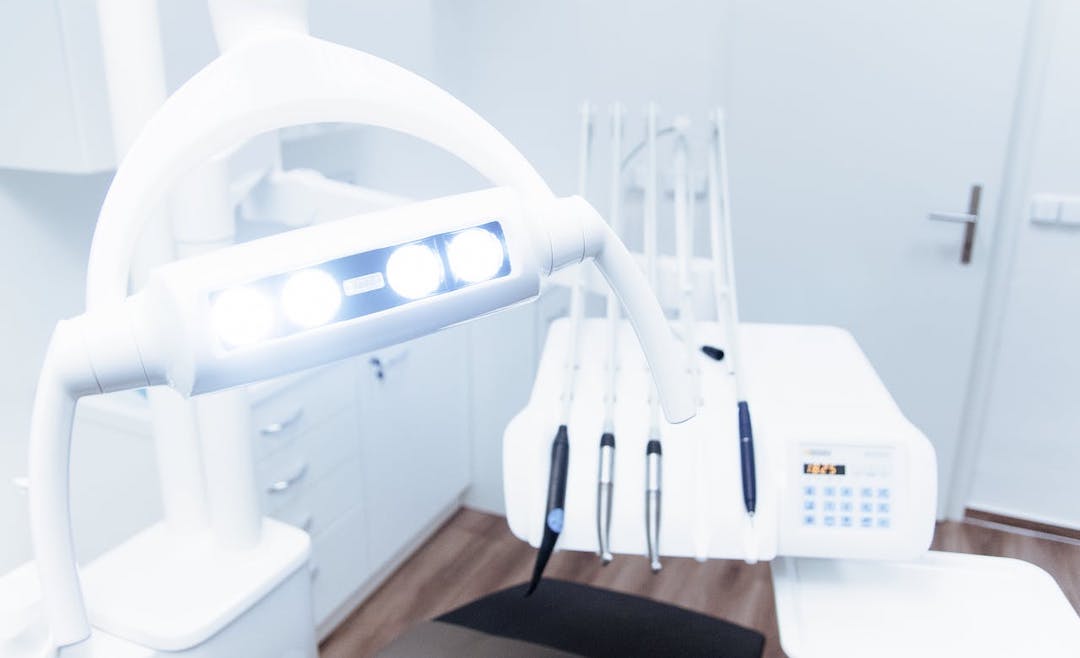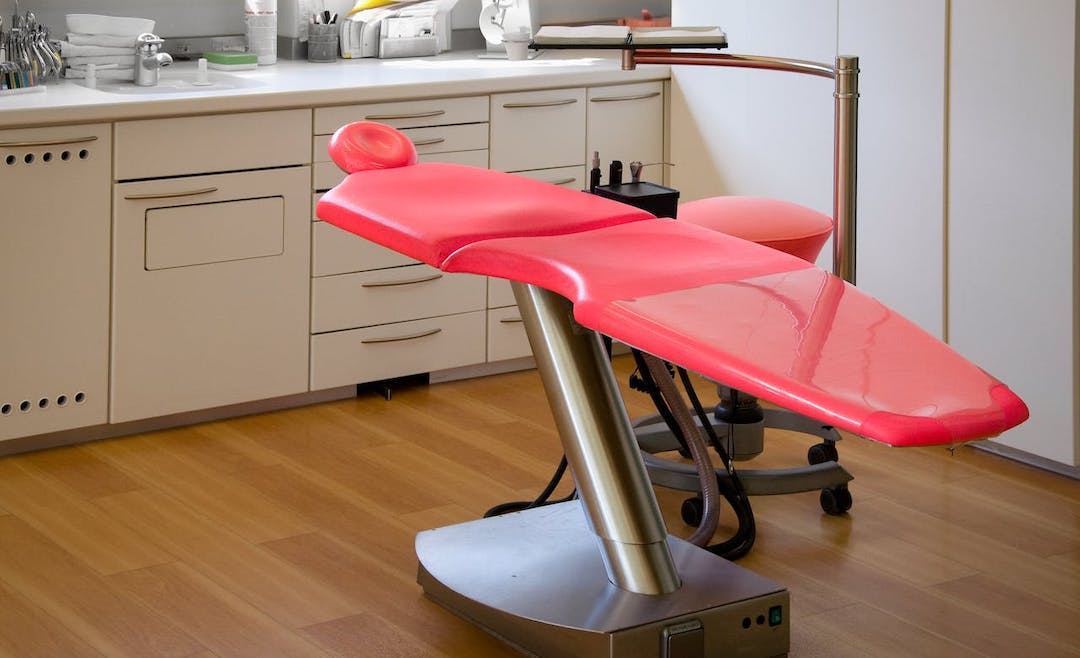A dental assistant usually works in a dentist’s office helping things run smoothly and taking care of patients. Dental assistants are responsible for duties like maintaining the office schedule as well as helping with bedside procedures like fillings and tooth extractions.
Dental assisting is a fast-paced and rewarding career that requires a special kind of person. If you’re looking to become a dental assistant, this article is for you. This article goes over the skills needed to be a great dental assistant and how to learn or improve them.
Dental Assistant Skills List
Before we dive into specifics, here is a list of some of the skills needed for dental assisting:
- Taking X-rays
- Removing sutures
- Sterilizing equipment
- Organization
- Customer service
- Dexterity
- Ability to keep patients calm
- Scheduling appointments
- Handling billing and payments
- Working with insurance companies
- Staying focused
- Problem-solving
- Detail oriented
- Applying fluoride
- Medical terminology
Clinical Skills Required to Be a Dental Assistant
Clinical skills are the things a dental assistant needs to be able to do to perform patient care and work with the dentist. Note that some of these skills cannot be performed without special training and certification.
- Removing sutures. Occasionally, the dental assistant will have to remove stitches that were placed after a dental procedure. This requires close attention to detail and steady hands to avoid harming the patient's cheeks, tongue, and mouth.
- CPR. Everyone working in a dental office or any other healthcare facility should be trained in CPR. While it is rare that CPR has to be performed in a dental office, knowing good technique can save a life.
- Applying fluoride. Applying fluoride at the end of a cleaning can help strengthen a patient's teeth and prevent decay. Dental assistants can learn special techniques to apply fluoride evenly across the teeth.
- Sterilizing equipment. Some equipment like drills are reused between patients. Because the tools come in contact with blood and saliva, they must be completely cleaned and sterilized after each use.
- Organizing tools. When dental assistants help with procedures like fillings and extractions, the dentist will expect all tools and supplies to be easily accessible and well organized. The dental assistant should make sure that all tools are kept in their proper storage compartment.
- Handling dental instruments. Dental assistants may have to handle sharp, small, or fragile instruments while working with dentists. The assistant should be confident in their ability to use all of the tools they need.
- Taking X-rays. X-rays can diagnose cavities and other patient issues in the mouth. However, radiation from the X-ray machine can be dangerous. Most states require dental assistants to complete special safety training before taking x-ray images.
Administrative Skills Required to Be a Dental Assistant
Administrative skills are used in the front area of the office. Administrative dental assistants perform a lot of secretarial-like duties, such as:
- Scheduling appointments. Scheduling appointments and sending appointment reminders is one of the most important jobs of an administrative dental assistant If the office schedule is too full or appointments are too spread out, the dentist office cannot function effectively.
- Ordering supplies. Dental assistants make sure that everything around the office is stocked. This might include paper, pens, toothbrushes, and suction canisters.
- Handling billing. Dental assistants are responsible for making sure that patients are billed appropriately for their procedures and that they pay either their copay or set up a payment plan at the end of their visit.
- Working with insurance. If a procedure or cleaning is covered by insurance, it is the dental assistant's job to submit all necessary paperwork to the insurance company for reimbursement.
- Updating patient records. Assistants can help improve patient care by keeping accurate medical records and making sure they stay organized. Having up-to-date information about medical problems, dental procedures, and allergies can keep patients well cared for and safe.
- Understanding medical terminology. Dental assistants must understand basic medical terminology to communicate with the dentist and hygienists. Understanding the basic anatomy of the mouth as well as knowing the technical terms for different procedures helps avoid mistakes and miscommunications.
Soft Skills Required to Be a Dental Assistant
Soft skills are often considered things you are born with, like patience or compassion. However, just like any other skill, soft skills can be developed with practice.
- Compassion for patients. Many patients who go to the dentist are nervous or even afraid. The dental assistant can help keep them calm by being patient and offering reassurance.
- Organization. Dental offices are fast-paced work environments where plans might change quickly. Assistants have to be organized in order to handle the demands of the job.
- Communication. As with any medical profession, breakdowns in communication can be inconvenient at best and cause patient harm at worst. Clear verbal and written communication is essential for anyone working in the dental office.
- Customer service. The dental assistant is usually the first person a patient or customer will see when they walk in the door. Dental assistants might also have to deal with difficult situations regarding billing and scheduling. Great customer service skills are a must for all dental assistants.
- Time management. The dental assistant not only creates the patients' schedules, but they play an important role in keeping everything running on time. Dental assistants need to know how to prioritize tasks and get things done quickly in order to avoid delays in appointments or procedures.
- Detail oriented. Between subtle differences in dental billing codes, sterilizing tiny pieces of equipment, and monitoring for changes in patient condition, dental assistants have to remain constantly aware of their surroundings and notice all of the little details.
How to Develop Skills as a Dental Assistant
Any of the skills required to work as a dental assistant can be learned and improved over time. While some soft skills will naturally get better with practice, some of the administrative and clinical skills require more guidance.
Working with professionals and asking for advice will help you improve more quickly than trying to do it on your own.
Complete a Training Program
Completing a certification program is the best way to improve your dental assisting skills. Both online and in-person programs will give you opportunities to practice and learn, and these dental assistant programs typically only cost $1,000 to $10,000.
Training programs that result in a certification will not just help you learn the skills you need for a successful career, a certification will show employers that you are serious about doing your job well.
Even if you are not required by your state to earn a certificate, doing so will make you a more competitive job applicant and enable you to ask for a higher salary.
Get Experience in an Externship
If you can, find a dental office that will let you job shadow for a few hours or a few days. Externships give you the opportunity to get real-life experience working alongside an experienced dental assistant.
During an externship, you can practice your clinical skills, refine your medical terminology, and figure out what kind of dental office environment you would like to work in.
Talk to Other Dental Assistants
If you have a hard time finding a training program or finding an externship, you can still connect with other dental assistants online. There are plenty of online forums and support groups to explore if you need advice, career guidance, or support as you start your dental assisting career.
Participate in Continuing Education Courses
Continuing education courses are required for anyone who is hoping to maintain their dental assisting certification. Even if you didn’t get certified, you can still participate in continuing education and learn something new.
You can find continuing education courses in HIPAA compliance, infection control, leadership, sterilization, pediatric dentistry, and more.




.svg)











